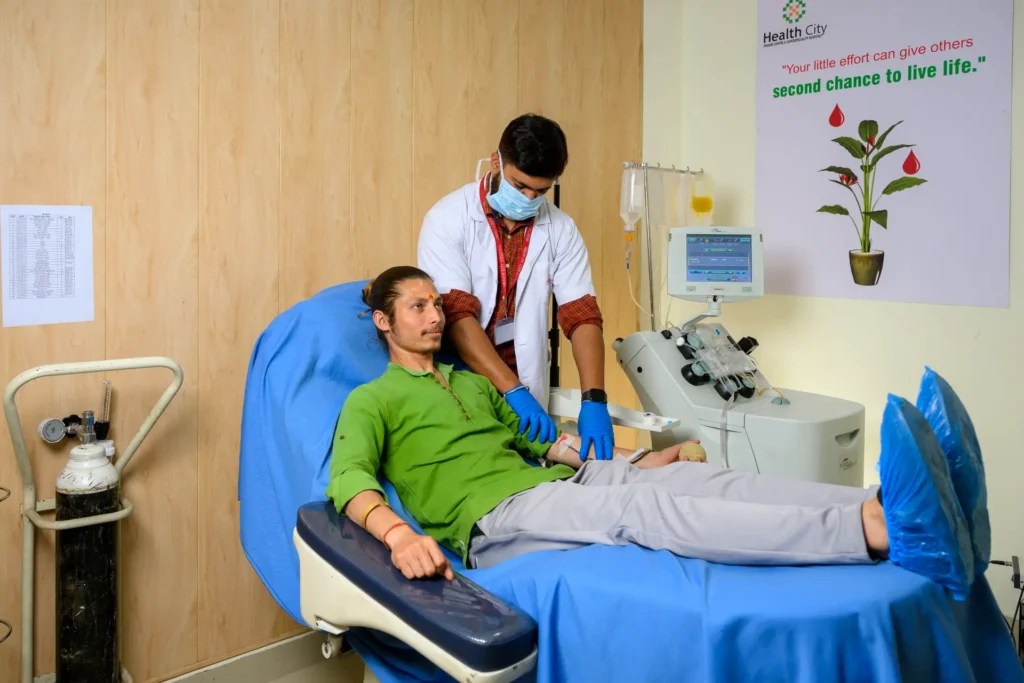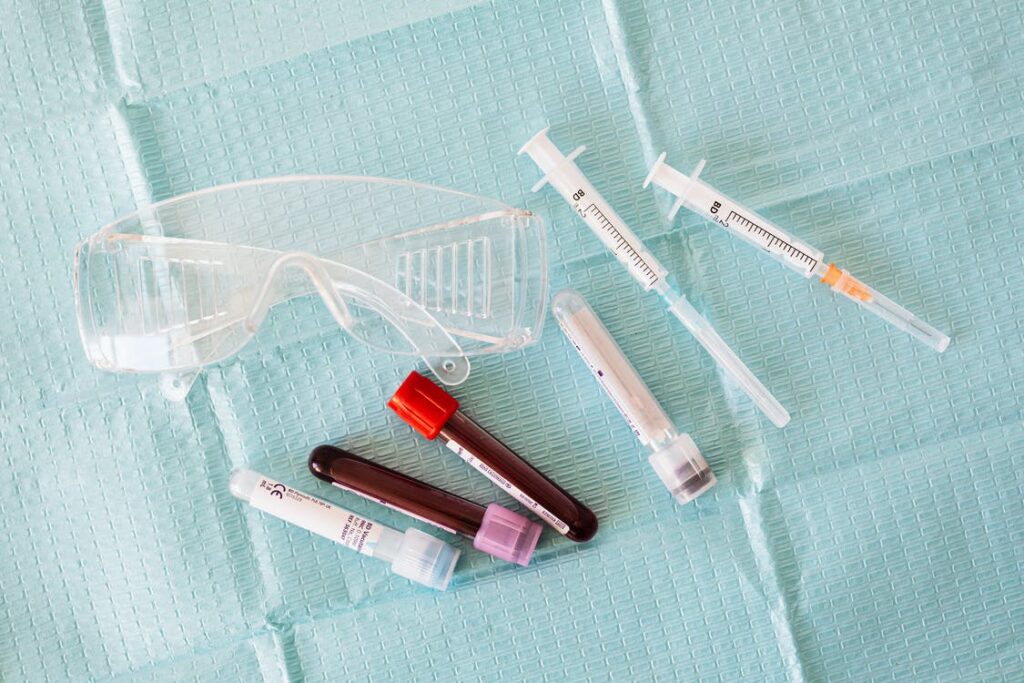Blood Donation is an act of altruism, imparting the precious gift of life. By a voluntary donation you don’t only save others but also secure your loved ones with the help of our donor card. Blood donation marginally decreases chances of heart attack and cancer, this only goes to prove that this act of humanity is the ultimate gift of life.

Well Being:
Age:
Volume of Whole Blood Collected from donors :
Whole Blood Volume Collected and Weight of donor:
Donation Interval:
Blood Pressure:
Pulse:
Temperature:
Respiration:
Haemoglobin :
Meal:
Alcohol:
Occupation:
Risk Behavior:
Travel and Residence:
Donor Skin:
Pre-Donation Care:
Post-Donation Care:

Thank you for considering the gift of blood donation. Every drop you give has the power to save lives and bring hope to patients in need. At Health City Hospital Blood Centre, operated by MedVedic Healthcare, we’re committed to making your blood donation experience as smooth, safe, and rewarding as possible. Here’s a step-by-step guide to what you can expect when you come in to donate blood with us.
Your journey begins with the most important step - your decision to donate blood. This selfless act is a critical contribution to our community's health, supporting not just emergency needs but also patients undergoing surgeries and treatments for various conditions. If you have any questions or need information before making this decision, our team is here to help. Feel free to contact us for more details.
Before you donate, we conduct an eligibility check to ensure your safety and the safety of the blood recipients. This check is based on the following criteria:
These are based on NACO and SBTC guidelines. A
Upon your arrival at our centre, our friendly staff will welcome you and guide you through a simple registration process. You'll be asked to provide some basic information and a valid form of identification. This step helps us keep records of all our donors and ensure the safety and traceability of the blood donation process.
Your health and safety are our top priorities. Before donating, you'll have a confidential conversation with one of our healthcare professionals to go through your medical history and any medications you may be taking. This is followed by a mini physical exam, including:
To further ensure your safety and the safety of the recipients, we conduct a mini physical examination and review your medical history. This includes:
These steps are crucial in safeguarding the health and wellbeing of both our generous donors and the valuable recipients of your blood donation. Thank you for your understanding and cooperation in these processes.
Now comes the main event - the donation itself. You'll be comfortably seated, and a new, sterile needle will be used to draw blood. The actual blood donation only takes about 10-15 minutes, during which approximately 450ml of blood - a safe quantity that your body can easily replenish - is collected. Our trained staff will be with you throughout the process to ensure your comfort and safety.
Immediately after donating, you'll rest for a short period in our recovery area where you'll be offered refreshments. This helps you to hydrate and replenish your energy. It's a good time to relax and feel proud of the difference you've made. Our staff will monitor you to ensure you're feeling well before you leave./p>
Before you leave, we'll provide you with post-donation care instructions to ensure a smooth recovery. This includes advice on staying hydrated, avoiding strenuous activities for the rest of the day, and what to do if you feel dizzy or lightheaded. We're always here if you have any concerns or need assistance after you've donated.
Congratulations! By donating blood, you've played a vital part in saving lives and supporting our healthcare system. We encourage you to share your experience and inspire others to donate too. Remember, you're always welcome back; whole blood donors can donate every three months, and we look forward to seeing you again.
Thank You from Health City Hospital Blood Centre
On behalf of the patients who benefit from your donation, and everyone at Health City Hospital Blood Centre operated by MedVedic Healthcare, we thank you for your generosity. Your donation today is a precious gift of life. If you have any feedback about your experience or wish to know more about how your blood is used, please don’t hesitate to reach out.
The steps in the process of blood donation are:
Please ensure that you read and understand all the information presented and answer all the questions truthfully. Any incorrect statement or concealment may affect your health or may harm the recipient.
Standard Laboratory Test: Hemoglobin and Blood Group.
Registration
Blood Donation
Refreshments
Instructions given below are informed to Donors by the phlebotomist and thank the Donor for his valuable contribution.

MedVedic Healthcare bridges the gap between medical institutions and supporting healthcare facilities such as blood banking, diagnostics and dialysis units etc